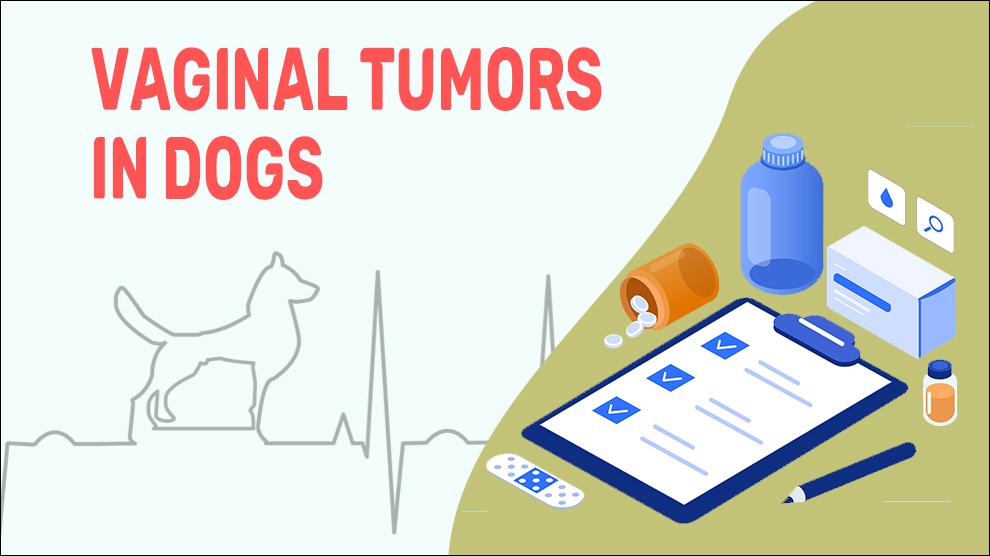What Is Vaginal Tumors In Dogs?
Vaginal and vulvar neoplasms account for 2-3% of all canine tumors. After the mammary gland tumors, vaginal tumors are the second most common female reproductive tumors of canines. Almost 85% of these tumors are benign and arise from smooth muscle with fingerlike extensions (such as, fibroma , fibroleiomyomas or leiomyomas). They are found in intact female dogs with median age of > 8 years.
Almost 15% of primary vaginal tumors are adenocarcinomas. Vaginal adenocarcinomas include mucinous, papillary, adenosquamous, clear cell and small cell variants. Dogs with adenocarcinoma must be carefully diagnosed (as there is no glandular tissue in the vagina) to eliminate the possibility that adenocarcinoma found in the vagina is a metastatic spread from another organ. Potential primary sites are most likely to include breast, vulva (Bartholin gland), cervix, endometrium, ovary, kidney, colon and rectum.
Lipomas usually occur in younger dogs of age < 8 years (Median age: 6.3 years). In dogs, a vaginal cancer may never be diagnosed in the animal (as they may never bother the animal), or it may lead to conditions that are not a direct consequence of the cancer, but due to its occurrence in the body, such as extreme menstrual bleeding (uterine leiomyomatas). Other complications can include difficult birthing and painful urination.
Similar to most canine cancers, the etiology of vaginal tumors is still unidentified. Though, some of these tumors have been associated with the presence of genetic component.
Symptoms Of Vaginal Tumors In Dogs
Inside the Vagina
- Difficulty giving birth or mating
- Vaginal palpation (these masses are usually easy to palpate)
- Hematuria (Blood in the urine)
- Dysuria/ Stranguria (Difficulty urinating)
- Frequent attempts to urinate
Outside the vagina
- Abnormal posture (especially while urinating) / Abnormal gait
- Vaginal discharge/Vulvar bleeding
- Pain/General weakness
- Fever
- Weight loss
Treatment Options For Vaginal Tumors In Dogs
- IM/IGRTradiation therapy: Image-guided and intensity-modulated radiation therapy is a is a relatively new technique in which high-energy beams of radiation are employed using imaging technologies such as PET, MRI, and CT.
- Primary tumors (diameter < 3cm): The most appropriate therapy for the non-metastasized primary tumors is local surgical excision. Radiotherapy may be used post-operatively to improve the tumor control.
- Primary tumors (> 3cm): When there is no evidence of metastasis, chemotherapy drugs can be used to attempt to shrink the tumor.
- Sublumbar lympadenopathy - Surgical removal of enlarged lymph nodes. This is performed in dogs with tumours that have spread only to the regional lymph nodes but no further.
- Urinary obstruction: Palliative radiotherapy can be used as short term relief.
- Any significant obstruction of the urethra: To keep open the urethra for urination, a surgical stent is placed.
Home Remedies For Vaginal Tumors In Dogs
- Once the surgery is over, activities of your dog should be restricted for about 2 weeks to allow recuperation and incision healing.
- A restrictive e-collar can be used for 2 weeks.
- Home-cooked diet, with wholesome, nutritious foods as an substitute to commercial diets.
How To Prevent Vaginal Tumors In Dogs?
The causes for vaginal tumour in dogs are mostly idiopathic and geriatric so prevention is not possible. Neutering the dogs is best way of prevention.
Affected Dog Breeds Of Vaginal Tumors
Afghan Hound, Airedale Terrier, Bull Terrier, Dalmatian, English Bulldog, Great Dane, Fox Terrier, Keeshond, Norwegian Elkhound, Scottish Terrier, Siberian Husky, Pekingese, Shetland Sheepdog, West Highland White Terrier, Weimaraner, Old English Sheepdog, Shetland Sheepdog, Female Dogs
Causes And Types For Vaginal Tumors In Dogs
1. Causes:
- Hereditary
- Older dogs - dogs over eight years old
- Reproductive status (whether neutered or not)
- Exposure to toxic chemicals (1,4-dichlorobenzene, doxorubicin, phenylbutazone), pesticides and herbicides, nitrosamines, cyclophosphamide, etc
2. Types:
Primary vaginal cancer: Cancer that starts off in the vaginal region itself is called primary cancer. Most primary cancers are aggressive and are with high metastatic potential.
Secondary vaginal cancer: Cancer that originates in another organ and spreads or metastasizes to the vaginal region.
3. Mortality:
Benign types of vaginal tumour mortality rate are almost zero. Primary vaginal tumour is highly aggressive and it should be diagnosed early as well as treated promptly. Unfortunately, it has high case fatality rate and < 50% of dogs survive more than 6 months from the time of diagnosis of primary types of cancer.
4. Prognosis:
Prognosis can fluctuate depending on the time of diagnosis and severity of the vaginal tumour. In general, if the tumor is diagnosed early on, prior to any metastasis, chemotherapy and radiation treatment may be effective. If there is any significant metastasis, vets may suggest against traditional treatment and will provide treatments to pacify the dog’s clinical signs to make them feel better.
When To See A Vet For Vaginal Tumors In Dogs?
Contact your vet right away, if you notice any of the following:
- Vaginal palpation (these masses are usually easy to palpate)
- Hematuria (Blood in the urine)
- Dysuria/ Stranguria (Difficulty urinating)
- Frequent attempts to urinate
Food Suggestions For Vaginal Tumors In Dogs
- High Protein, Low Carbs, Good Fats and antioxidants and cancer-fighting nutrients
- Protein should comprise 40% of dogs’ calories. Fresh, lean protein (Lean white fish such as cod, grouper, haddock, lean cuts of beef, pork loin)
- Fats: Salmon, herring, mackerel, lake trout, tuna and sardines
- Vitamin-rich fruits and veggies: Legumes, snap peas, green beans, carrots, cauliflower, broccoli, cabbage, tomatoes, citrus fruits, Blueberries, strawberries, cherries etc
Conclusion
Vaginal tumour prognosis for recovery is good, if it is detected early and before any metastasis has happened. In this case, survival time can be extended with more definitive treatment. If the cancer has metastasized to distant regions, management of disease symptomatically is often performed as long as possible.
The chances of recovery for metastasized vaginal cancer are poor. Once quality of life has declined or clinical signs cannot be controlled, Euthanasia may be required.

















